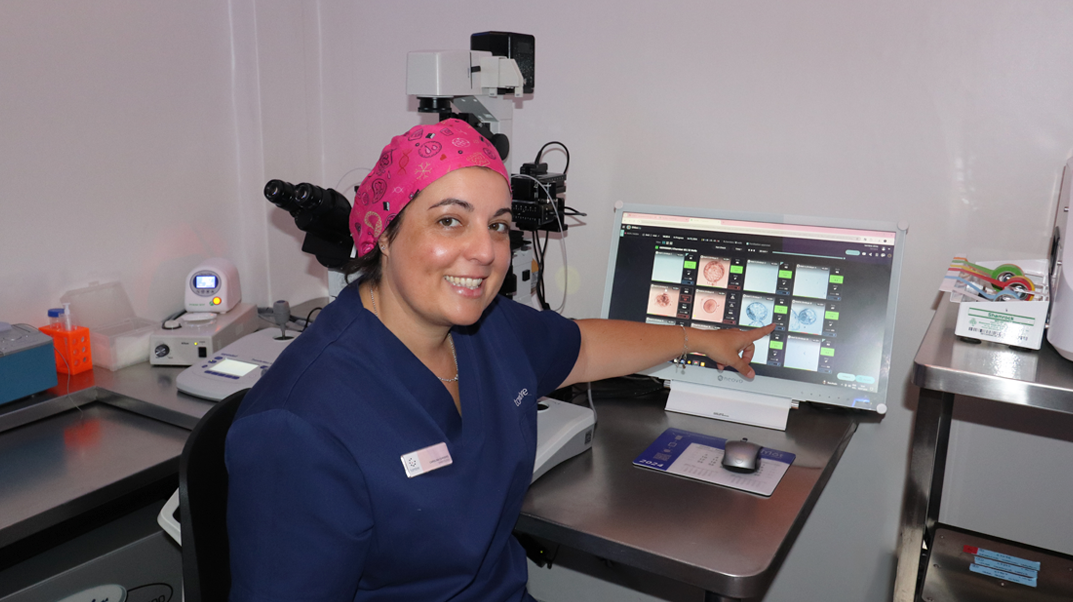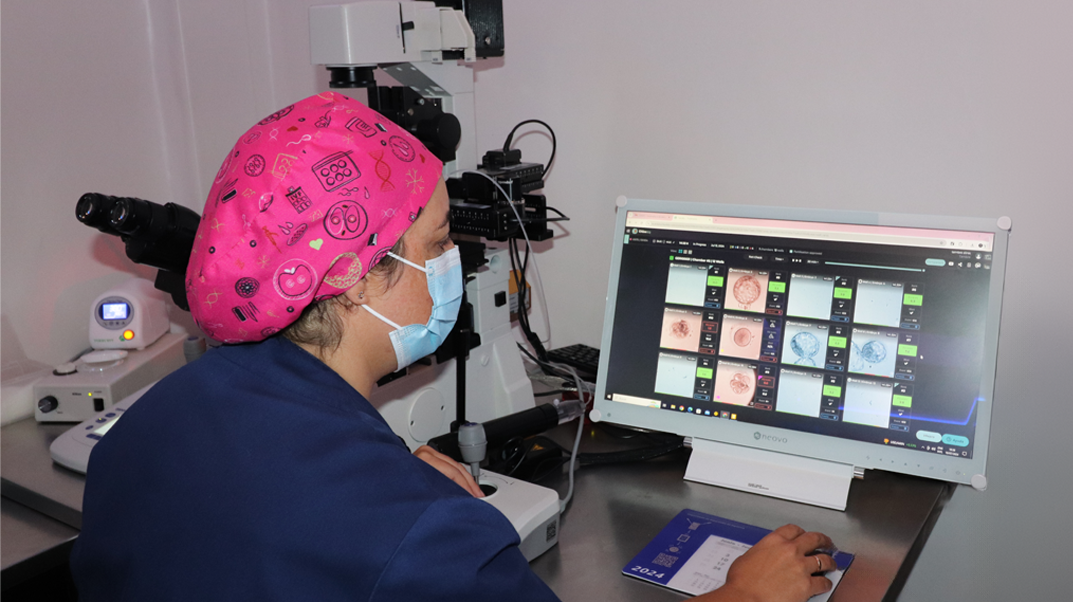Table of contents
In a fertility treatment, several variables determine the success of the pregnancy and the birth of a baby. Reducing the time needed to achieve gestation and the emotional burden it entails is crucial. The correct preparation for the mother-to-be is as fundamental as the selection of the right embryo. This is where artificial intelligence (AI) marks a revolution to achieve earlier and more accurate IVF pregnancies.
Until now, embryologists have been responsible for choosing the embryo based on parameters such as its shape, division rate, cell fragmentation, symmetry and blastocyst structure. Today, AI complements this work seamlessly, making it possible to choose the best embryo in less time and with greater precision thanks to the detailed analysis of embryo images.
Tambre, the first clinic
Madrid was the first city where this technology was implemented on an experimental basis at the Tambre Clinic, which incorporated this AI technology into its in vitro fertilisation (IVF) laboratory. In fact, it provided the first images to the programme in its early days, and it is now part of its day-to-day work. The aim is to respond to the growing infertility rate and the increasing delay in childbearing. It implements advanced AI-based technology designed to revolutionise embryo selection during in vitro fertilisation procedures by using millions of images of embryo development to select the most suitable embryo for implantation in the mother’s uterus.
“Chloe™ promises to significantly improve the chances of success for couples facing difficulty conceiving. This tool not only increases the chances of pregnancy, but also reduces the time and personal challenges involved in fertility treatments,” stresses Tambre’s scientific director, Dr. Ángela Llaneza.
Increased infertility
Currently, infertility affects between 15-20% of couples of reproductive age in Spain, according to the Spanish Fertility Society (SEF). In addition, delayed childbearing has become a growing trend, with Spanish women having their first child on average after the age of 32. In this context, the incorporation of AI tools offers new hope for those seeking to start a family.
“Chloe™ represents a significant milestone in the search for more accurate and effective methods to improve success rates in fertility treatments. Using advanced AI algorithms, this technology thoroughly analyses images of embryos and evaluates multiple criteria to identify those with the greatest potential for successful implantation,” explains Laboratorios’ director, Dr. Susana Cortés.
This process not only optimises embryo selection, but also reduces the time needed to make critical decisions, giving patients greater confidence and peace of mind at every stage of treatment.

Embryologist Carolina Cordero with Chloe in the Tambre IVF laboratory.
Advanced technology
The embryologist explains that all of the clinic’s incubators are synchronised with Chloe™, which monitors all embryo divisions, allowing for a more detailed understanding of cell divisions. Based on them and on the times in which they develop, the embryo with the greatest capacity for implantation in the maternal uterus is evaluated.
“This AI gives us an implantation rate score for each embryo. The system is fed with millions of images,” explains the specialist, adding that “it automatically analyses all the parameters, some of which the embryologist cannot see, so it is very helpful.
Getting pregnant earlier
This tool allows the embryologist to “choose the order of embryo transfer to be most effective and achieve pregnancy in the shortest possible time, reducing the number of treatments a woman must undergo to achieve pregnancy, and never working with the intention of discarding embryos”.
“We have pioneered the use of AI in assisted reproduction by being the first clinic in Spain to use Chloe™ technology in its testing phase. We have now implemented this technology on a routine basis in assisted reproduction treatments, which is an extraordinary advance for our patients,” adds Cortés. A technology that represents a significant advance in the ability to offer personalised and effective solutions to patients facing the challenge of infertility.

